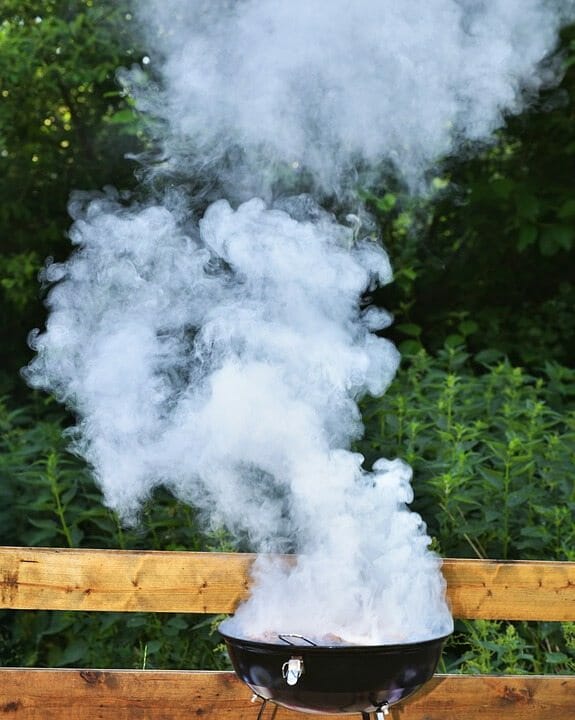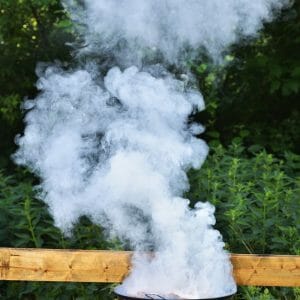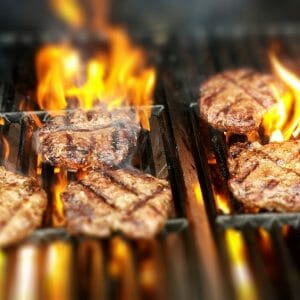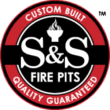
 Flare-ups are a common problem when grilling food, especially meats. Whether it’s beef, pork, lamb, chicken or fish, meat has a tendency to flare up when grilled. When this occurs, the red-hot coals turn into a tall flame, essentially charring the meat. While a single, small flare-up shouldn’t hurt your food, consistent flare ups can burn the exterior while also making it dry and less juicy. So, how can you can prevent flare-ups when grilling?
Flare-ups are a common problem when grilling food, especially meats. Whether it’s beef, pork, lamb, chicken or fish, meat has a tendency to flare up when grilled. When this occurs, the red-hot coals turn into a tall flame, essentially charring the meat. While a single, small flare-up shouldn’t hurt your food, consistent flare ups can burn the exterior while also making it dry and less juicy. So, how can you can prevent flare-ups when grilling?
Choose Lean Meats
Normally, flare-ups are triggered by excess animal fat dripping down onto the hot coals. When the fat reaches the hot coals, it ignites; thus, causing a tall but short-lived flame known as a flare-up. You can often prevent flare-ups, however, by choosing lean meats. If you’re making hamburgers, for instance, choose ground beef that’s 90% lean and 10% fat. Or if you’re grilling steaks, stick with lean cuts like filet mignon and sirloin instead of a New York strip or ribeye.
Cut Back on the Oil
In addition to choosing lean meats, you can also reduce the risk of flare-ups when grilling by using less oil. Cooking oil is often applied either to the meat being grilled or the grill itself. When applied to the meat, it helps the seasoning stick while also creating a non-stick surface. When applied to the grill grate, it further prevents the meat from sticking. Unfortunately, however, oil has a similar effect as animal fat when exposed to hot coals. As the oil drips down onto the coals, it triggers a flare-up. This doesn’t necessarily mean that you have to stop using oil when grilling. Rather, try using less oil.
When it comes to oiling a grill grate or meat, follow the “less is more” approach. Use a brush to apply a small, thin layer of oil on the surface of your grill grate or meat. As long as there’s no excess oil that’s dripping, it shouldn’t cause a flare-up.
Trim the Fat
A third tip for preventing flare-ups is to trim fat from your meat before grilling it. Even if you choose lean cuts, it probably still has some fat — and that’s okay. Rather than allowing this fat to burn on the grill — and cause a flareup — consider trimming it. Using a sharp knife and cutting board, slice away the excess fat.
Open the Lid
Should you grill with the lid open or closed? Grilling with the lid closed creates more heat, whereas grilling with the lid open creates less heat. The latter, also known as “grill roasting,” reduces the risk of flare-ups by exposing your food to lower temperatures and less direct heat. With that said, however, grilling with the lid open doesn’t cook food as thoroughly and evenly as grilling with the lid closed, so you really need to consider what you are grilling. As long as it’s not too thick and doesn’t require significant heat, an open-lid grill should suffice.
Clean Your Grill
Don’t underestimate the importance of cleaning your grill, either before or after every use. Failure to clean your grill will result in the accumulation of fat and oil drippings, which can flare up the next time you use it. Additionally, it contributes to rust and corrosion by holding moisture. These problems are easily prevented by using a wire brush and paper towels to clean this debris. So, try to get into the habit of cleaning your grill before or every after use. Even if you only use it to grill a couple burgers, you should still clean it to prevent flare-ups and protect against rusting.
Grill Away from the Wind
 Another contributing factor to flare-ups when grilling is wind. Going back to the basics of firemaking 101, wind intensifies flames by fueling it with oxygen. As wind pushes through the flame, the additional oxygen causes it to flare up. While you can’t necessarily control mother nature, you can choose an area to grill that’s protected from the wind. Before lighting your grill, find an area with a wind break. Grilling on your front porch instead of back — or vise-versa — is another idea that can protect your grill from the wind.
Another contributing factor to flare-ups when grilling is wind. Going back to the basics of firemaking 101, wind intensifies flames by fueling it with oxygen. As wind pushes through the flame, the additional oxygen causes it to flare up. While you can’t necessarily control mother nature, you can choose an area to grill that’s protected from the wind. Before lighting your grill, find an area with a wind break. Grilling on your front porch instead of back — or vise-versa — is another idea that can protect your grill from the wind.
Don’t Extinguish with Water!
If a flare-up occurs when you are grilling, don’t attempt to extinguish it with water. Conventional wisdom may lead you to believe that spraying the grill with a water bottle with extinguish the flare-up. Like a grease fire in the kitchen, however, water is ineffective for this purpose. Furthermore, spraying your grill may cause wet ash to reach your food. If you notice your grill flaring up, open the lid and wait for it to burn out. Because flare-ups are caused by excess fat or oil, they usually burn out after just a few seconds.
If you have any questions regarding how an S&S Fire Pit can enhance your outdoor living space; We can help. https://ssfirepits.com/contact/


